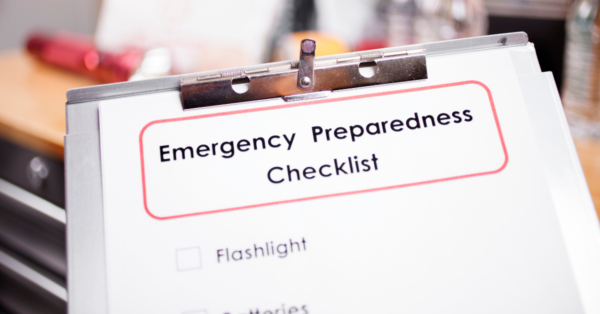It’s not a matter of if you will need an emergency plan, but when. An emergency is just that something can happen at any time. Emergency Preparedness is putting together a set of precautionary measures in the face of a potential disaster. There is a huge benefit to planning ahead. Having a plan takes a lot of stress off of you.
People and families that plan for emergencies will:
- Help keep people safe
- Limit property damage
- Know what to do during and after a disaster
- Better manage their savings
- Support community preparedness
- Help their community get back up and running after a disaster
I often think am I prepared for an emergency. I can say yes and no. Yes, because I have a plan in case of a fire at my home. No, because I am not fully prepared.
FEMA gives us 12 steps to prepare.
- Sign up for alerts and warnings
- Make a plan
- Save for a rainy day
- Practice emergency drills
- Test family communication plan
- Safeguard Documents
- Plan with neighbors
- Make your home safer
- Know evacuation routes
- Assemble or update supplies
- Get involved in your community
- Document and insure property
At all times you want to make sure you have a working smoke and carbon monoxide detector. Flooding is the most common disaster in the U.S. Here are some other emergencies we should all prepare for.
- Active Shooter
- Financial Preparedness
- Earthquake
- Power Outage
- Wildfire
- Winter Storm
- Tsunami
- Thunderstorms, Lightning, and Hail
- Pandemics
- Landslide
- Nuclear Explosion
- Hurricane
- Cyberattack
List of supplies to have in your kits
- Water enough for 3, 7, or 14 days
- Perishable food
- Cash
- Battery-powered or hand crank radio
- Flashlight and extra batteries
- First aid kit
- Whistle
- N95 mask
- Tools to turn off utilities
- Can opener and other food preparation tools
- Local Maps
- Extra medications for 7 days
To sign up for alerts in your area:
Baltimore City Sign Up for Emergency Alerts | Office of Emergency Management (baltimorecity.gov)
Baltimore County Sign Up for Emergency Alerts – Baltimore County (baltimorecountymd.gov)
Harford County Tips Tips/Information | Harford County, MD (harfordcountymd.gov)
I hope you will feel more empowered. As long as you add to your emergency preparation every day you will be heading in the right direction.
For more information, you can check out these sites:
Emergency Prep Home (maryland.gov)

